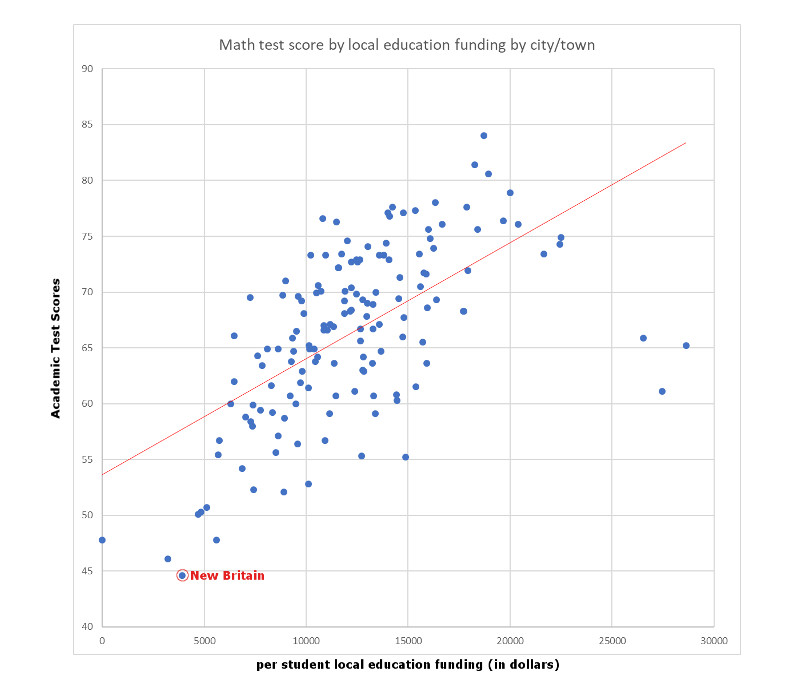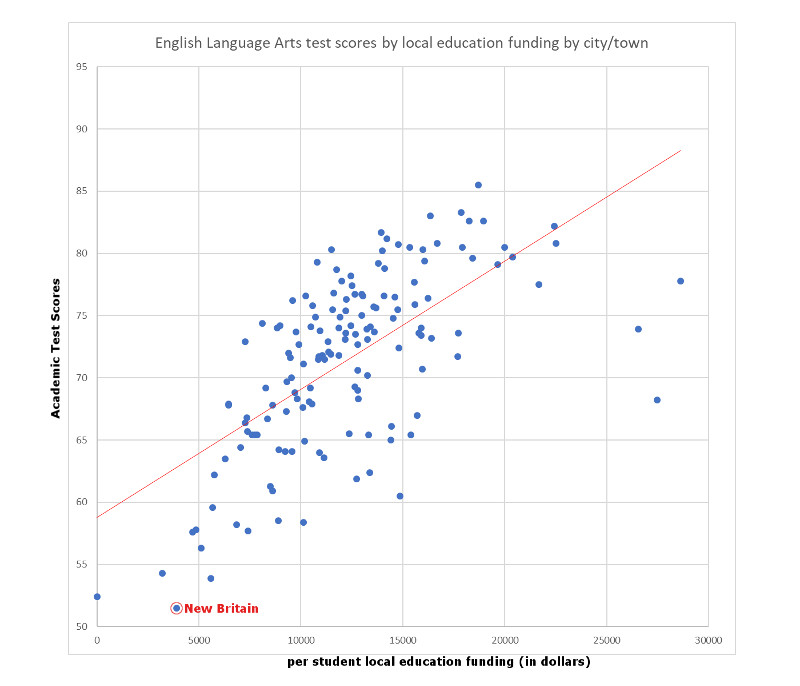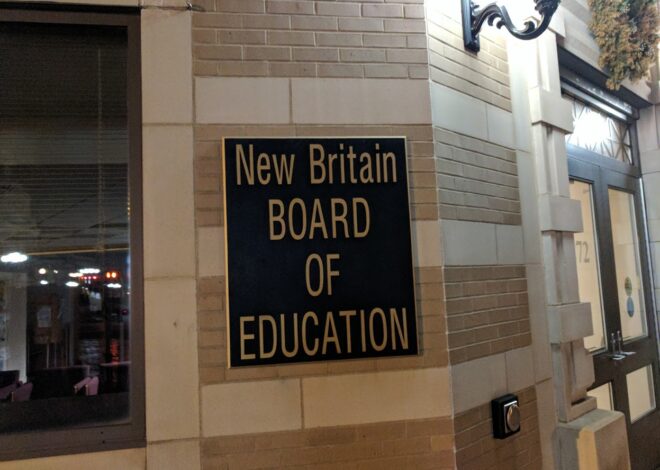With Republican Mayor Erin Stewart’s budget plan freezing city operating funding for schools, City Council Republicans are proposing a “Savings Fund” for city schools.

Stewart has proposed that the city operating allocation to New Britain schools should receive $0 of new funding in the city budget year that starts July 1, 2020 and ends on June 30, 2021. Meanwhile, she appears to be proposing a $3 million increase in the City Hall budget.
Amid Council consideration of Stewart’s proposal to freeze school operating funding from the city, four fellow Republicans on the City Council are proposing a resolution saying that, “there may be a need for supplemental monies to cover operational expenditures in future budgets for the Consolidated School District of New Britain.”
The Republicans’ resolution would direct,
the Finance Department of the City of New Britain to create and maintain a “Savings Fund” for the Consolidated School District of New Britain to offset future operational expenses, liabilities, and capital projects for budget FY 2020-2021 and budget years moving forward.”
The “Savings Fund” resolution anticipates that, “as a result of Governor Lamont’s executive orders regarding school class cancellations, the Consolidated School District of New Britain has the potential to see an operational budget surplus for FY 2019-2020.”
The specific source of the potential “budget surplus” is not referred to in the resolution, but on the agenda of the April 22, 2020 Council meeting, Ald. Sharon Beloin-Saavedra (R-AL), one of the sponsors of the “Savings Fund” resolution, had proposed a Council petition that, among other inquiries, had asked the Board of Education if it has, “realized savings in the transportation line due to the lack of need for busing students to school?”
The school district has reportedly seen a savings from the cost it would have incurred in bus transportation, but those funds have reportedly already been transferred to aid students without computers or internet access in online learning. Online learning has been the main route left to the school district to continue students’ education during the COVID-19 pandemic.
On May 4, 2020, the Board of Education reportedly approved a proposal on its agenda for a, “Budget Transfer for Purchase of Chromebooks and Wi-Fi Vehicle Project ($1,525,970.00).”
The Republicans’ resolution does concede that, “it is too early to quantify the full effects of COVID-19 on the finances of both the City of New Britain and the Consolidated School District of New Britain.”
The “Savings Fund” resolution is proposed by the Council’s President Pro-Tempore, Ald. Kristian Rosado (R-2), the Council Majority Leader, Ald. Daniel Salerno (R-AL), Ald. Robert Smedley (R-4) and Beloin-Saavedra.
The level of city education funding, the amount of money that the city allocates from local taxes to fund the regular annual budget of the city’s schools, has become a significant issue for New Britain.
The New Britain Progressive reported in 2019 that, despite New Britain receiving, “the fifth highest state Education Cost Sharing grant funding of all of the cities and towns in the state,”
New Britain’s own local commitment to education, on the other hand, is among the lowest municipal school districts in the state. Only Bridgeport allocated less local funding per student than New Britain in the 2015-2016 state data.
While New Britain residents have less money than the state average to fund local services, the New Britain Progressive reported that, even looking at a percent of the city’s ability to pay, the city of New Britain still appeared to allocate to its schools, “the second lowest among municipal school districts in the state.”
The New Britain Progressive also reported that,
Comparing the amount of local support for education, using the 2015-2016 data, to the most recent academic test scores appears to show a general correlation between how much a city or town provides in local funding for their schools and the test scores of the students in their schools. The comparison appears to show New Britain’s place near the bottom of both local education funding and test scores as part of a larger pattern, with New Britain near the low end of the scale.


The New Britain Progressive reported in 2019 that it would appear that it would have, at that time, taken a $14 million per year increase from the city to get the city up to the average amount cities and towns spent as a portion of their local ability to pay four years ago, apparently leaving New Britain’s city commitment to annual school operating budgets far behind the benchmarks that appear correlated with higher educational outcomes.
The “Savings Plan” proposal is on the agenda of the May 13, 2020 City Council meeting.




